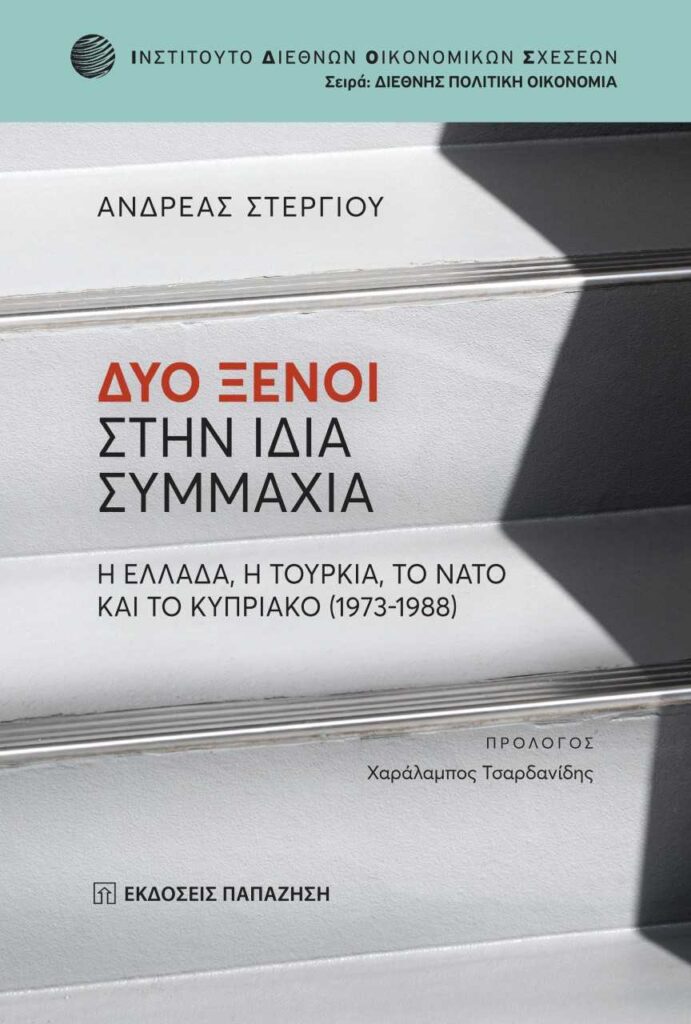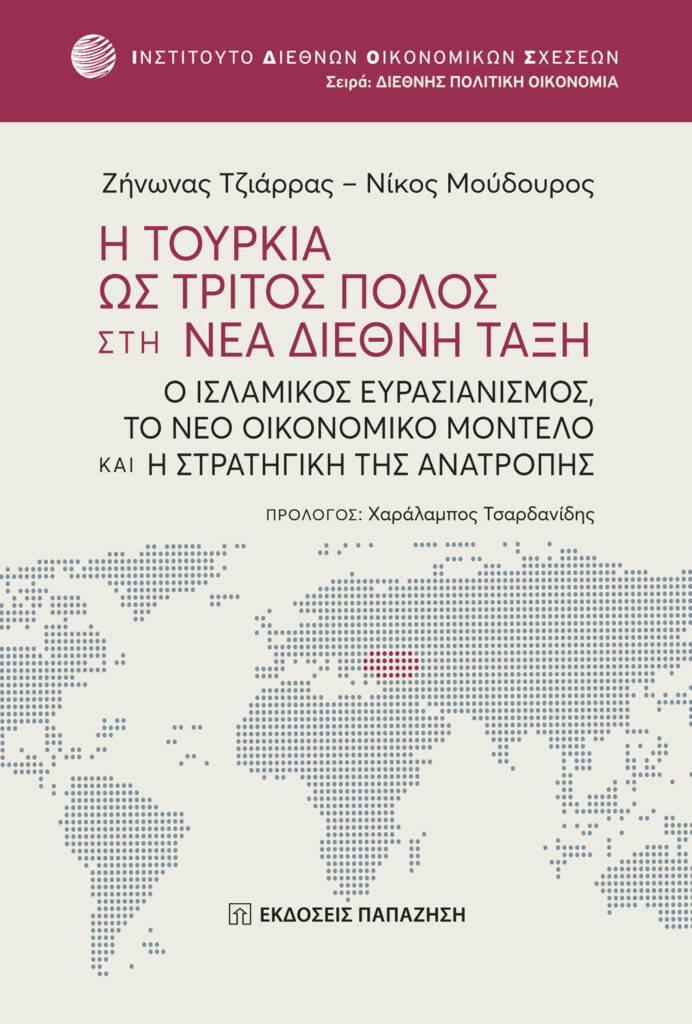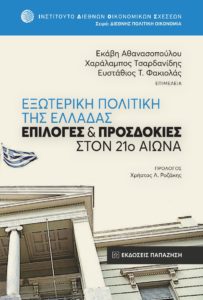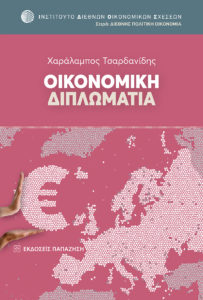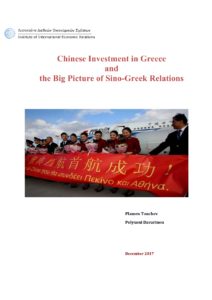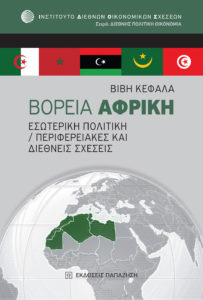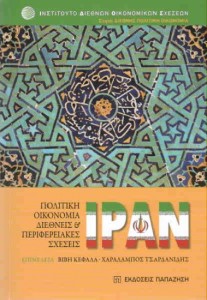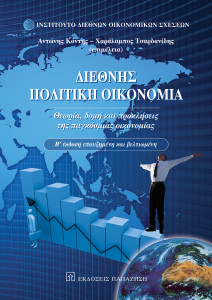CONFERENCE ANNOUNCEMENT & CALL FOR PAPERS
to be held on
15-16-17 May 2014
Venue: University of Aegean, 1, Dimocratias Ave., Rhodes (Greece)
on
EURO-MED, BROADER MIDDLE EAST AND NORTH AFRICA (BMENA): SOCIETY, POLITICS, ECONOMICS, SECURITY AND INTERNATIONAL RELATIONS AFTER THE ARAB SPRING
Organizers: Department of Mediterranean Studies, University of Aegean Institute of International Economic Relations, Athens
Co- organizers: ARAID/Aragón Foundation for Research & Development, Zaragoza, Spain
Faculty of Economics and Administration Studies, Ege University, Izmir
Department of International Relations, Izmir University of Economics
Journal of Balkans and Near Eastern Studies
CONFERENCE OBJECTIVES AND RATIONALE:
At a time of fundamental changes both in the international system and in the Broader Middle East and North Africa after the Arab Spring, but also at a time of deep changes within the European Union and among its member states, it is necessary to assess Euro-Mediterranean relations and the situation in the Broader Middle East and North Africa in a detailed and comprehensive way. It is also symbolically important to hold an international conference on these changes and their outcomes in Greece while the country will hold the rotating EU Presidency during the first half of 2014.
To evaluate the complex situation created by the changes mentioned above, one should take an interdisciplinary perspective and include Political Science, Sociology, Economics, Security and International Relations. Additionally, to evaluate the present situation in a changing world and in a globalize context it seems that diverse perspectives in International Relations are necessary. The Conference will be also applicable to practitioners (government and governance officials, diplomats, civil society, parliamentarians, etc.
It is articulated at two main axes:
- The first is linked to all the factors that guide the EU – Mediterranean relationship. Five years on since it was first launched, the Union for Mediterranean (UfM) appears to be at a crossroads. Many conferences and other academic meetings have dealt with the record of the UfM . However, to date there has not been any systematic academic discussion of the way EU and Third Mediterranean states and societies perceive the UfM. What where the UfM’s objectives and have these been achieved? What about its future? Are there a common perspective and objectives on the Mediterranean relationship, and if not, what are the reasons for such different approaches?
- The second analyses the situation prevailing at the Broader Middle East and North Africa after the Arab revolts, treating issues of domestic politics, political systems, political Islam, economic and social growth, human rights, women condition but also the impact of all those events not only to the regional security but to the international system as well as the recent developments in Syria prove. The beginning of the “Arab Spring” during December 2010 that culminated in the wave of changes in Tunisia, Egypt and Libya, Yemen in early 2011 has produced a very important new literature, discussing the concept itself, its implications for the countries and the regions involved and beyond. Also, new literature has appeared on how key international actors –USA, Russia, China, EU, UN- have responded. The self immolation of Mohamed Buazizi in Tunisia on 17 December 2010 and the relatively rapid downfalls of Ben Ali’s regime in Tunisia and then of the Mubarak’s regime in Egypt in the first weeks of 2010, confirmed the materialization of what has become to know as the “Arab Spring”. As a result of the above, there is little doubt that for the EU, the revolts in the Mediterranean have early become a matter of urgency and priority. The EU has identified those changes as a key test for the EU itself. In the words of the EU High Representative for Foreign Affairs and Commission Vice-President, Catherine Ashton, “Europe will be judged by how it responds to the momentous events going on in our neighbourhood.”
Under these circumstances, Greece is undertaking on January 1st 2014 the rotating Presidency of the European Union. It is a high symbolic event given that Greece is a Mediterranean country that is hardly tested by the economic crisis that ravages the North of Mare Nostrum.
The general topics of the Conference may include, but are not limited to, the following:
1. The problems and prospects of the Euro- Mediterranean relations
Ø The application of new regionalism , neo-realist theory and interregional approach on Euro- Mediterranean relations
- Prospects of regional and sub- regional cooperation in the Mediterranean area
- Development and evaluation of the Union for Mediterranean
- Promoting Democracy and the Union for Mediterranean
- The europeanisation process of the Third Mediterranean Countries
- Security agenda in the Mediterranean region and arms race
- European security and the Mediterranean
- National Policies toward the Union for Mediterranean
- Dynamics of Convergence and Differentiation in Euro-Mediterranean Relations
- The Policies of the Mediterranean EU Countries Towards the Israeli- Palestinian Conflict
- The Eastern Mediterranean: Greek, Cypriot,Turkish, Israeli Interactions and Images
- The ENP after four years of the start of the Arab Spring
- Normative Power Europe and Mediterranean
- Euro-Mediterranean Economic Integration
- Turkey towards Mediterranean region
- Comparative studies (two or more member states, or two or more “difficult/problematic” foreign policy issues)
- Advantages and limits of a FTA (free trade area) in the Euro-Mediterranean area
Ø Development policies in the Mediterranean region
Ø Transport and telecommunication networks
Ø Trade relations between Mediterranean EU states and other Mediterranean states.
Ø The consequences of the economic crisis for the process of EU- Mediterranean relations
Ø Investment flows in the Mediterranean region
Ø Civil society and Euro- Mediterranean relations
Ø Parliament Diplomacy in the Mediterranean region
Ø Business networks and the role of business activity
Ø Human Security and Mediterranean.
Ø Terrorist threat in the Mediterranean
Ø Problems and prospects for migration in the Mediterranean region
Ø Cultural Dialogue in the Mediterranean and the role of EU.
Ø Environmental protection in the Mediterranean area and
2. The problems and prospects of the Broader Middle East and North Africa (BMENA)
Ø Contemporary conflicts in BMENA
- Geopolitics and BMENA
- Nuclear weapons and Middle East
- Iran’s nuclear challenge
- Water security in BMENA
- The politics of conflict and peace making in the BMENA
- Perspectives on the Israel –Palestinian conflict
- Third actors in the Middle East
- The international dimension of the Arab Spring
- Prospects and constraints of regionalism in the BMENA
- Democratisation in BMENA
- Secularism and Islam in BMENA
- Islam and democracy in the Middle East
- State and Society in BMENA. The challenge of the Arab Spring
- The challenge of Democracy in the Northern Africa
- The lessons from the Arab uprisings
- Elections in the Arab countries
- The success of Islamist parties
- The democracy deficit in the Arab world
- The construction of nationalist ideology and politics in the BMENA Region after the Arab Spring
- Political change in the Arab oil monarchies
- Where Iran is heading
- The unknown future of Syria
- Turkey and the Middle East : Foreign policy and foreign economic relations
- The role of Israel in the BMENA region
- Mapping civil society in the BMENA region
- State and tribalism
- Population dynamics and demography
- Minorities in BMENA
- Gender and diversity in BMENA
- The economic structure of BMENA
- International economic crisis and the BMENA region
- The future of Gulf governance
- The international Political Economy of energy security in BMENA
- Economic reforms and change in BMENA
- Foreign Direct Investment and trade flows in BMENA
- The international markets and reform in BMENA
Please send your abstract (300-350 words) by 31 January 2014, which should include: the argument of the paper, theoretical background, conclusions and approaching methods of the topic. It is required from all participants to attach to the abstract a file with their personal data: Names, title, status, corresponding address, telephone number, fax and email.
Notification of acceptance by 15 February 2014, and the deadline for the submission of the paper will be 2 May 2014. A paper presentation is not a prerequisite for participation but accepted papers givers who do not send their papers by the 2 May 2014 deadline will NOT be accepted as speakers.
The Conference will be held in Rhodes. The Organisers will publish a significant number of the Conference’s papers in an edited Volume, while other papers which will be published in academic journals and on the website of the Institute and, after scholarly peer review.
PARTICIPATION FEES AND EARLY-BIRD REGISTRATION DATES:
Until 10 April 2014: 150 euros per person.Ph. D. Students: 100 euros
Fees will cover all papers in electronic form, two buffet lunches and a welcome reception.
Bank transfer to: Syndesmos AE & EPE
National Bank of Greece IBAN:300110 0800 0000 0 804 8072 196
BIC: ETHNGRAA
Both abstracts and papers should be submitted to IIER by e-mail or fax to:
Dr. Charalambos Tsardanidis
Director
Institute of International Economic Relations
Email: [email protected]
FAX: 0030-210-3620274
Important dates
31 January 2014: abstract submissions deadline
15 February 2014: notification of acceptance
10 April 2014: early bird registration (fee: 150 euros) by bank transfer
2 May 2014: full paper submission deadline
15-17 May 2014: conference dates
ORGANIZATION COMMITTEE
Dr. Charalambos Tsardanidis, Director,Institute of International Economic Relations, Athens.
Dr. Panayiotis Tsakonas, Associate Prof, Head of the Department of Mediterranean Studies, Aegean University.
Dr. Stelios Stavridis, ARAID/Universidad de Zaragoza.
Further Information:
Mrs. Stella Milioti, Institute of International Economic Relations,
Tel: 0030-210-3620274, 0030210-3636326
Fax: 0030-210-3626610
E- mail: [email protected]


